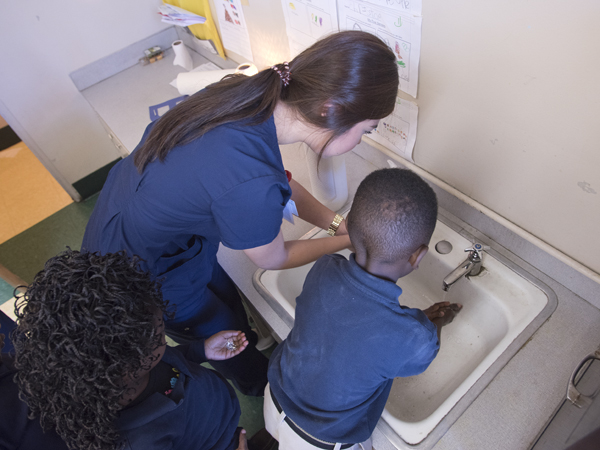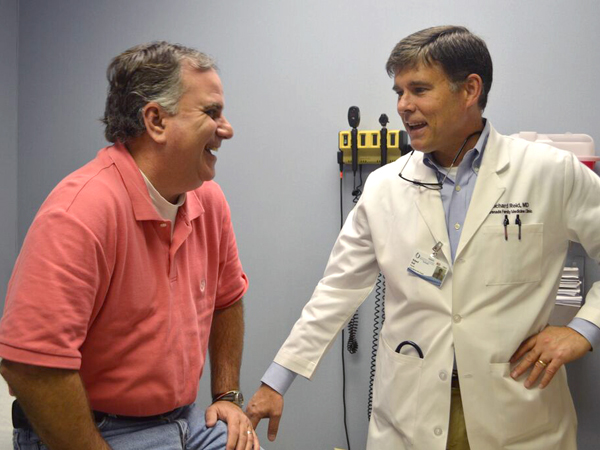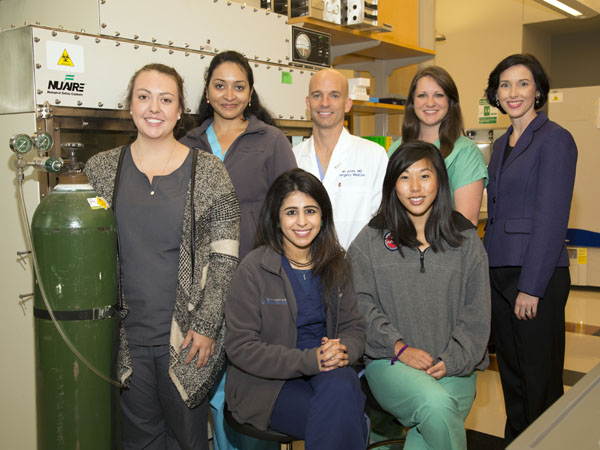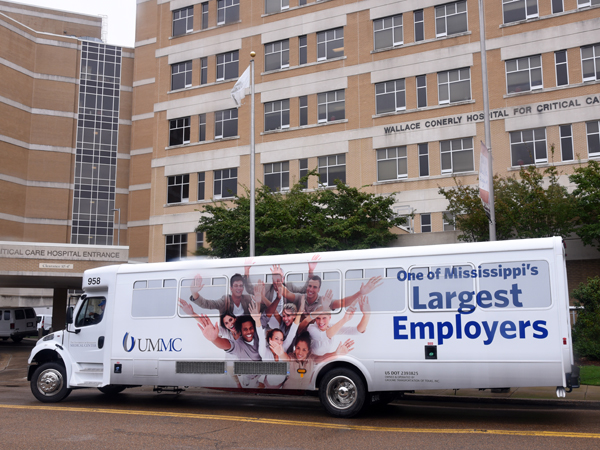|
For the past decade and a half, Dr. Alan Jones has stared down the often-deadly sepsis infection. Not in his own bloodstream, but in a research laboratory. Jones, chair of the University of Mississippi Medical Center's Department of Emergency Medicine, has studied sepsis in clinical trials before and after coming to the Medical Center in 2011. His research goals include finding ways to lessen the effects of a nasty disease that can make the body attack its own organs and often results in a patient being placed on a ventilator. “It can be devastating and result in rapid death,” said Jones, professor of emergency medicine. “The mortality rate when it progresses to septic shock is 40 percent. Only about one in two patients will live.” Sepsis is an extreme reaction to an infection, most commonly pneumonia or a urinary tract infection. When such an overwhelming immune response to an infection occurs, chemicals released into the blood to fight the infection also trigger inflammation that can cause organs to fail. In the worst cases, a person's blood pressure plummets, causing septic shock and often death. First recognized in the early 1700s as a condition that rapidly progressed after someone developed an infection, sepsis moved into the limelight in the Jackson area after legendary television anchor and newsman Bert Case was hospitalized with it on August 31. Case is slowly recovering, but the disease nearly killed him. “There's no way to prevent it,” Jones said. “It needs to be recognized and treated early, before it gets bad.” It's been proven through research that some people can be genetically predisposed to getting a more severe inflammatory response to infection, and that if you have sepsis once, you're prone to it recurring. Jones has designed and directed clinical trials sponsored by the National Institutes of Health that explore ways to diagnose sepsis earlier in the infection process, and to treat the patient by changing the chemicals present in the bloodstream. Jones is presently the principal investigator for a multi-center clinical trial that is coordinated out of UMMC and is being conducted in 15 U.S. academic medical centers taking part. “We're doing studies to develop markers in the bloodstream to determine the imprint that sepsis may be present sooner than is clinically apparent,” Jones said. “We're also doing a trial to give patients replacement of a nutrient, carnitine, that allows energy production and metabolism to be more efficient.” Carnitine is a substance the body uses to efficiently turn fat into energy. Giving the body additional carnitine can improve the ability of certain tissues to produce energy at a time when an infection like sepsis is draining the body's energy, which causes problems with breathing and often triggers an altered mental state. “By providing this nutrient, we believe patients will heal faster and recover more quickly than those who don't get the nutrient,” Jones said. “It provides energy.” It's that lack of energy production that can in part cause a patient with sepsis to rapidly deteriorate as he becomes weak, dizzy and confused. Patients with other risk factors that suppress their immune system - for example, if they're on chemotherapy or cope with a chronic disease condition - “have a harder time fighting infection, and a harder time getting over the disease process,” Jones said.
|




























